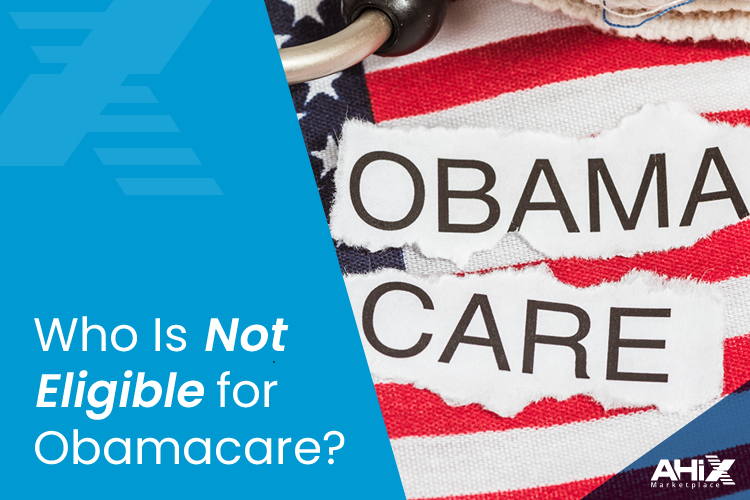The Affordable Care Act (ACA), commonly known as Obamacare, was created to expand access to health insurance for millions of Americans. But who is not eligible for Obamacare? Certain groups—such as non-residents, incarcerated individuals, undocumented immigrants, and Medicare beneficiaries—do not qualify for ACA marketplace plans. This guide explains why these groups are excluded and explores alternative health insurance options available to them.
Key Takeaways
- Individuals residing outside the U.S., incarcerated individuals, and undocumented non-citizens are ineligible for Obamacare coverage due to residency and legal status requirements.
- Enrollment in Obamacare is prohibited for Medicare beneficiaries as they receive comprehensive coverage under Medicare, eliminating the need for additional ACA plans.
- Income level plays a critical role in determining eligibility for Obamacare, with subsidies targeted toward low-income individuals, and changes in employment can create opportunities for Special Enrollment Periods.
Non-Residents and U.S. Residency Requirements
One of the fundamental requirements for enrolling in Obamacare is U.S. residency. Non-residents, including international visitors and tourists, are ineligible and should consider alternatives such as travel insurance or short-term health plans.
Applicants are generally not required to provide proof of residency when enrolling. However, if there is a discrepancy in the application—known as a Data Matching Issue (DMI)—proof of citizenship or lawful presence may be requested.
Non-resident expatriates may explore private health insurance plans designed for coverage in specific regions or countries. These plans provide medical benefits tailored to the policyholder’s location, ensuring access to healthcare services where they reside.
With increasing global mobility, individuals living abroad for extended periods should carefully assess their healthcare options, monitor medical expenses, and consult with insurance providers to secure appropriate coverage and avoid unexpected costs.
Incarcerated Individuals and ACA Restrictions
Incarcerated individuals serving a sentence in prison or jail are not eligible for Obamacare coverage. The Affordable Care Act excludes them from enrolling in a Marketplace plan, though some states provide limited healthcare services to meet basic medical needs during incarceration.
However, eligibility changes upon release. Once individuals are no longer incarcerated, they qualify for a 60-day special enrollment period to apply for ACA coverage. Failing to enroll during this window means they must wait until the next open enrollment period unless they experience another qualifying life event.
Access to healthcare is critical for reintegration, as it impacts overall well-being, employment opportunities, and financial stability. Many formerly incarcerated individuals face significant barriers to preventive care and are more likely to be uninsured. Regaining ACA eligibility helps reduce health disparities and improves long-term health outcomes.
Navigating health insurance after incarceration can be overwhelming, but community health centers and ACA coverage provide essential support. Ensuring access to affordable healthcare plays a key role in successful reintegration into society.
Immigration Status: Undocumented and Non-Citizens

Undocumented individuals do not qualify for Obamacare. To enroll in a plan, applicants must be lawfully present in the U.S., which excludes those without legal status.
However, not all non-citizens are excluded. Lawfully present immigrants, such as green card holders, individuals with valid visas, and those with certain humanitarian protections, may qualify for Obamacare. This includes refugees, asylees, and individuals with Temporary Protected Status (TPS), who are eligible for ACA benefits.
Non-citizens seeking more affordable coverage must also meet residency and income requirements to qualify for premium tax credits and cost-sharing reductions, which help lower monthly premiums and out-of-pocket costs. This structured eligibility system ensures that only qualified individuals receive ACA benefits, maintaining system integrity while providing essential healthcare.
Medicare Beneficiaries and Dual Coverage Rules
Medicare beneficiaries are not eligible for Obamacare. Since Medicare provides comprehensive coverage that meets ACA requirements, additional Marketplace coverage is unnecessary, and beneficiaries cannot enroll in Marketplace plans.
Medicare’s guaranteed benefits ensure enrollees receive essential medical care, including hospital care, outpatient services, and prescription drugs. Because Medicare already offers these core benefits, Marketplace coverage is not an option for those enrolled in Medicare.
To prevent overlapping benefits, the ACA prohibits dual enrollment in both Medicare and Marketplace plans. This rule maintains Medicare’s integrity, prevents redundant coverage, and ensures efficient resource allocation. Beneficiaries cannot switch to Obamacare, as the law bars dual enrollment, preserving Medicare’s role as the primary source of coverage.
How Income Affects Obamacare Eligibility
Income does not disqualify individuals from enrolling in Obamacare, but it significantly impacts eligibility for financial assistance. The ACA uses Modified Adjusted Gross Income (MAGI) to determine eligibility for Medicaid and Marketplace subsidies, creating a standardized process.
However, individuals who qualify for Medicaid based on income are not eligible for subsidized Obamacare coverage. Medicaid provides free or low-cost insurance, so the ACA does not allow people to receive both Medicaid and Marketplace financial assistance at the same time.
Additionally, those with higher incomes may face limitations. Individuals earning over 400% of the federal poverty level (FPL) may still qualify for some subsidies, but they must repay any excess tax credits if their final income exceeds the threshold. To receive Marketplace subsidies, individuals must also prove that job-based insurance is either too expensive or fails to meet minimum value standards. These restrictions ensure that Obamacare subsidies are reserved for those who genuinely need financial assistance.
Employer-Sponsored Insurance and ACA Subsidies
Having employer-based health insurance does not disqualify someone from enrolling in Obamacare, but it affects eligibility for ACA subsidies. Individuals with affordable job-based coverage do not qualify for premium tax credits or other subsidies through the Marketplace. This rule ensures that financial assistance is directed toward those without access to affordable employer coverage.
A job-based plan is considered affordable if the employee’s share of the premium for self-only coverage does not exceed a set percentage of household income. If the plan meets this affordability standard and minimum coverage requirements, the employee and their household members are not eligible for subsidies, even if they choose to decline the employer plan.
For those without employer-sponsored coverage or whose job-based insurance is deemed unaffordable, Marketplace subsidies help reduce health insurance costs. Understanding these rules is essential when deciding between keeping employer-based insurance or exploring other health coverage options.
Summary
Understanding who is not eligible for Obamacare is crucial for making informed health insurance decisions. Certain groups, including non-residents, incarcerated individuals, Medicare beneficiaries, and those with specific immigration statuses, do not qualify for Marketplace coverage or subsidies.
Income and employment status also impact subsidy eligibility, ensuring that financial assistance is directed toward those who need it most. Individuals with affordable employer-sponsored insurance or Medicaid eligibility typically do not qualify for Obamacare subsidies.
If you are not eligible for Obamacare, there are still other affordable health coverage options available. You may qualify for Medicaid, short-term health plans, or employer-sponsored insurance. Explore your options to find a plan that best fits your healthcare needs.
Frequently Asked Questions
1. Can non-residents apply for Obamacare?
No, non-residents cannot apply for Obamacare. Only individuals living in the U.S. with legal residency status can enroll in an ACA marketplace plan. Non-residents, including tourists and short-term visitors, should consider private health insurance or travel insurance instead.
2. Are undocumented immigrants eligible for Obamacare?
No, undocumented immigrants do not qualify for Obamacare because the ACA requires legal residency. However, they may be eligible for state-funded health programs or community health services in some states.
3. Can international students get Obamacare?
No, international students are generally not eligible for Obamacare because they are considered non-residents for ACA purposes. The ACA requires applicants to be lawfully present in the U.S., and while some visa holders qualify, most international students on F-1, J-1, M-1, or Q visas do not meet the residency requirement for Marketplace coverage.
4. Can DACA recipients qualify for Obamacare?
No, DACA (Deferred Action for Childhood Arrivals) recipients are not eligible for ACA coverage. They are not considered lawfully present under the ACA, which means they cannot enroll in Marketplace plans or receive premium tax credits and other subsidies.
5. Are incarcerated individuals eligible for Obamacare?
No, individuals currently in prison or jail are not eligible for Obamacare. However, they may apply for coverage before release or during a Special Enrollment Period after being released.
6. Can Medicare beneficiaries enroll in Obamacare?
No, if you are on Medicare, you cannot enroll in an ACA marketplace plan. Medicare provides comprehensive coverage, making additional ACA coverage unnecessary.
7. What is the income limit for Obamacare eligibility?
Income limits depend on household size and state expansion policies. Generally, individuals earning between 100% and 400% of the federal poverty level (FPL) qualify for subsidies. In Medicaid expansion states, those earning below 138% of the FPL may qualify for Medicaid instead.
8. What happens if my income is too high for Obamacare subsidies?
If your income exceeds 400% of the federal poverty level, you may not qualify for ACA subsidies. However, you can still buy a marketplace plan at full cost or explore private health insurance options.
9. Can I get Obamacare if I have employer-sponsored insurance?
Yes, you can get an Obamacare (ACA) plan even if you have employer-sponsored insurance, but you likely won’t qualify for subsidies unless your job-based plan is unaffordable (costs more than 9.12% of your household income) or doesn’t meet minimum value standards.
10. Can I apply for Obamacare outside the Open Enrollment Period?
Yes, but only if you qualify for a Special Enrollment Period (SEP) due to a life event, such as:
- Losing job-based health insurance
- Marriage or divorce
- Moving to a new state
- Having a baby or adopting a child
11. What should I do if I don’t qualify for Obamacare?
If you don’t qualify for Obamacare, consider these alternative health insurance options:
- Medicaid (if income-eligible)
- Short-term health insurance plans
- Employer-sponsored insurance
- Private health insurance plans
12. What happens if I lose my job-based health insurance?
Losing job-based health insurance qualifies you for a Special Enrollment Period (SEP), allowing you to enroll in an ACA plan outside Open Enrollment. You typically have 60 days to sign up for coverage.


